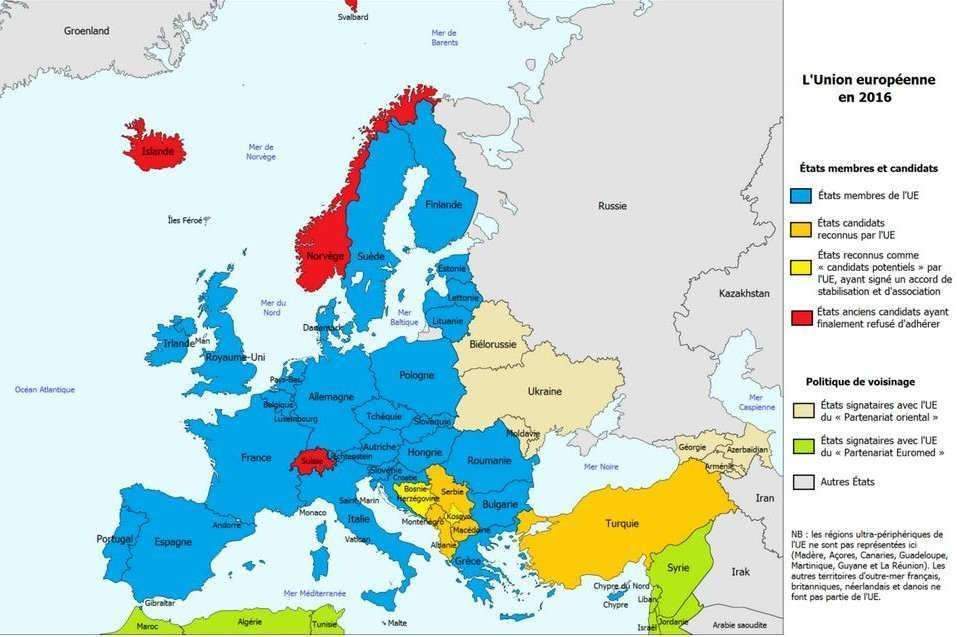From Brexit to the rights of rail and air passengers and the 15 years of the ECC-Net network, the European Consumer Centre France offers you an overview of new consumer products in Europe in 2020.
Brexit: deal or no deal on January 31?
Four years after the referendum, the UK is due to leave the European Union on 31 January 2020. With or without an agreement with its European neighbours? That is the question. What are the consequences for British and European consumers? The European Consumer Centre France has listed on its website the consequences of Brexit in terms of purchases, travel, care or communication costs.
Something new for train passengers
Since 2009, passengers travelling by train across the European Union have benefited from protective rules in the event of delays or cancellations. Ten years after its entry into force, a new text has been proposed by the European Commission. After the vote of the European Parliament in November 2018 and the position of the EU Council adopted in December 2019, this text should be definitively adopted in 2020.
It provides, among other things, for :
– to apply the same rights to national long-distance and cross-border journeys,
– to introduce exceptions to the payment of compensation due in the event of delays of more than 1 hour and to cancellations (extreme weather conditions, major natural disasters or persons present on the track),
– to better inform travellers of their rights,
– to facilitate the transport of bicycles on trains.
Towards a review of air passenger rights?
Expected since 2014, the revision of the regulation on air passenger rights could finally see the light of day in 2020. A European study to be published in January shows that Europeans do not know their rights when travelling by plane and the bankruptcy of many airlines in recent months has shown the need to revise this regulation which dates back to 2004. In addition to a better information of their rights to air passengers, the ECC France wishes that the revision of the regulation allows in particular :
– to define the notion of “extraordinary circumstances” and to list exhaustively the events that can justify the non-payment of compensation by airlines;
– to define and harmonise the rules on the dimensions and weight of cabin baggage;
– to impose more transparency in the price of air tickets by defining the services included in the minimum fare;
– to create a mechanism in each EU country to compensate passengers in the event of airline bankruptcy, as currently exists in Denmark.
Better enforcement and modernisation of consumer protection rules
As part of the “New Deal” for consumers, Europe intends to amend 4 directives to strengthen consumer rights. One of the key elements of the New Deal is the Directive on better enforcement and modernisation of consumer protection rules in the EU, which entered into force on 7 January 2020. Member States now have 2 years to amend their rules on, among other things :
– the information of consumers on Marketplaces: they will have to know in advance whether the seller is a professional or a private individual, whether the seller has paid to appear in the first search results, whether they have rights, who is responsible for enforcing the right of withdrawal and the legal guarantee (the third party seller or the Marketplace)
– customer reviews: sellers will have to ensure that reviews are authentic, for example by allowing only consumers who have bought online to write a review.
– free” digital services (cloud, social networks, e-mail, etc.) for which consumers provide personal data: consumers will have to be clearly informed of the characteristics of the service, the duration of the contract, the general terms and conditions of use, the possibility to cancel the contract within a 14-day withdrawal period, etc.
– The resale of event tickets through online robots at a price higher than that set by the official seller is prohibited.
Fewer charges and more transparency in cross-border payments in the EU
The euro area comprises 19 EU countries in which cross-border consumer payments are at the same price as national payments. Since 16 December 2019 and the entry into force of Regulation 2019/518, the same rule now applies throughout the EU and thus to non-euro area countries, namely Bulgaria, Croatia, the Czech Republic, Denmark, Hungary, Poland, Romania, Sweden and the Czech Republic, as well as Iceland, Liechtenstein and Norway. In 2020, if a French student in Denmark wishes to transfer euros abroad, he or she will therefore pay the same fees as for a transfer in Danish kroner within Denmark. The regulation also provides for more transparency on currency conversion charges. For example, before a payment by credit card or a transfer in another currency, the bank will have to inform the consumer by SMS or via its website of the amount of the conversion fee to be paid. This amount will be displayed in the local currency and in the currency of the consumer’s bank account.
15 years of ECC-Net
ECC France is a member of the European network ECC-Net, created in 2005 and co-financed by the European Commission and the Member States. This network has 30 ECCs, one in each EU country, as well as in Iceland and Norway. It employs 124 people across the EU who inform consumers about their rights in Europe and help them settle cross-border disputes free of charge. In 2020, the ECC-Net celebrates 15 years of European consumer services and plans monthly information actions on different consumer issues. In January, sustainable and responsible consumption is in the spotlight: go to the ECC France twitter account.

